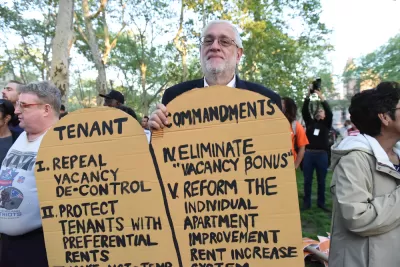A discussion of the book Evicted, and in particular its suggestion that rent in poor neighborhoods is not much lower than the rent in middle-class areas.

I recently read Matthew Desmond's book Evicted; one of the author's more interesting observations is his suggestion that renters in poor neighborhoods pay only a little less than renters in richer neighborhoods. First, I did a little research to see if current economic reality backs up his claim. A large chunk of Evicted is about College Mobile Home Park in the South Side of Milwaukee, where trailers rent for about $480 per month. By contrast, in middle-middle-class Cudahy, the cheapest one-bedroom apartment advertised on Craigslist is a little over $600, and the median rent is just under $800. Even if neighborhoods like Cudahy are a little more expensive than Desmond’s research suggested, they still cost only a few hundred dollars more than the mobile home park. So why do the down-and-outers profiled in Desmond’s book live in trailer parks or poor neighborhoods?
Let us assume, for the sake of argument, that the contract rent for a destitute tenant in a lower-class area is the same as the contract rent in the average neighborhood. It does not necessarily follow that the former tenant can easily move to the average neighborhood, for several reasons.
First of all, Desmond’s book shows that lower-class tenants do not always pay the contract rent. He notes that in the poorest neighborhoods, landlords are sometimes willing to accept partial payment if a tenant is not unduly troublesome, or seems likely to get more income in the future. Thus, the rent is a sticker price subject to negotiation. By contrast, in middle-income areas with higher rent, I am not sure if this is the case; if I started paying half my rent, my landlord in Midtown Manhattan might not be as indulgent as the trailer-park landlord profiled by Desmond.
Second, many landlords in middle-class areas have created a variety of policies designed to screen out tenants who cannot pay the hoped-for rent. Even when I lived in cities much cheaper than Manhattan, I usually had to pay a security deposit for an apartment- something that tenants with no savings probably cannot afford. In addition, I usually have to supply the names of prior landlords as references and undergo a credit check; a tenant with a history of evictions will probably not have good references from prior landlords, and a credit check will usually disclose the tenant’s financial problems. So the reference/credit check process is likely to exclude a destitute tenant even from a fairly cheap apartment; thus, the tenant's only recourse will be the sort of landlord who does not ask too many questions. Such a landlord is most likely to be found in places where nearly everyone is destitute and landlords thus cannot be as choosey as in better-off areas.
In sum, the listed rent alone is not enough to explain why the poor cannot easily switch neighborhoods; landlords tend to prefer tenants who can be counted on to pay rent regularly, and have created policies that exclude tenants who are too poor to be able to do so.

Trump Administration Could Effectively End Housing Voucher Program
Federal officials are eyeing major cuts to the Section 8 program that helps millions of low-income households pay rent.

Planetizen Federal Action Tracker
A weekly monitor of how Trump’s orders and actions are impacting planners and planning in America.

Ken Jennings Launches Transit Web Series
The Jeopardy champ wants you to ride public transit.

California Invests Additional $5M in Electric School Buses
The state wants to electrify all of its school bus fleets by 2035.

Austin Launches $2M Homelessness Prevention Fund
A new grant program from the city’s Homeless Strategy Office will fund rental assistance and supportive services.

Alabama School Forestry Initiative Brings Trees to Schoolyards
Trees can improve physical and mental health for students and commnity members.
Urban Design for Planners 1: Software Tools
This six-course series explores essential urban design concepts using open source software and equips planners with the tools they need to participate fully in the urban design process.
Planning for Universal Design
Learn the tools for implementing Universal Design in planning regulations.
Ada County Highway District
Clanton & Associates, Inc.
Jessamine County Fiscal Court
Institute for Housing and Urban Development Studies (IHS)
City of Grandview
Harvard GSD Executive Education
Toledo-Lucas County Plan Commissions
Salt Lake City
NYU Wagner Graduate School of Public Service






























